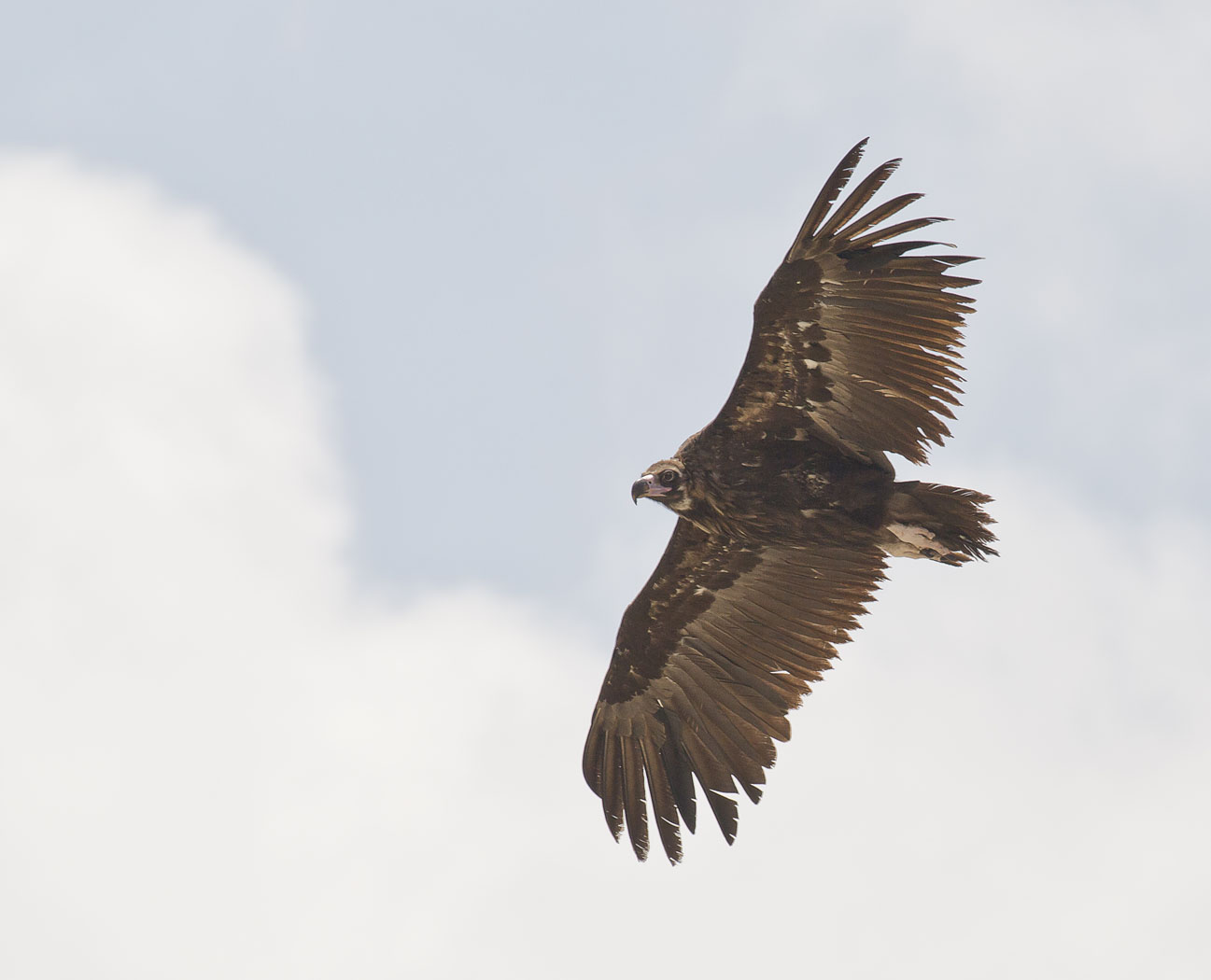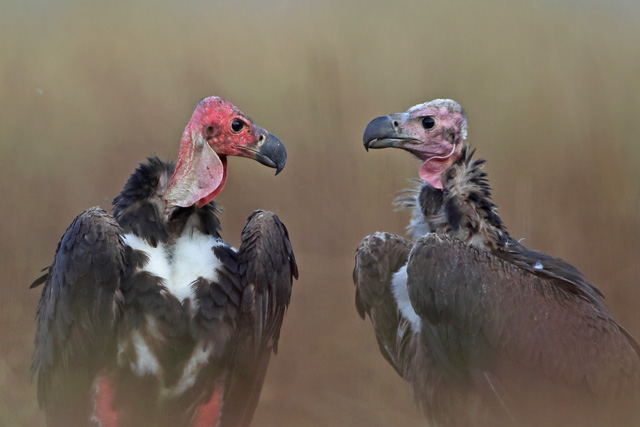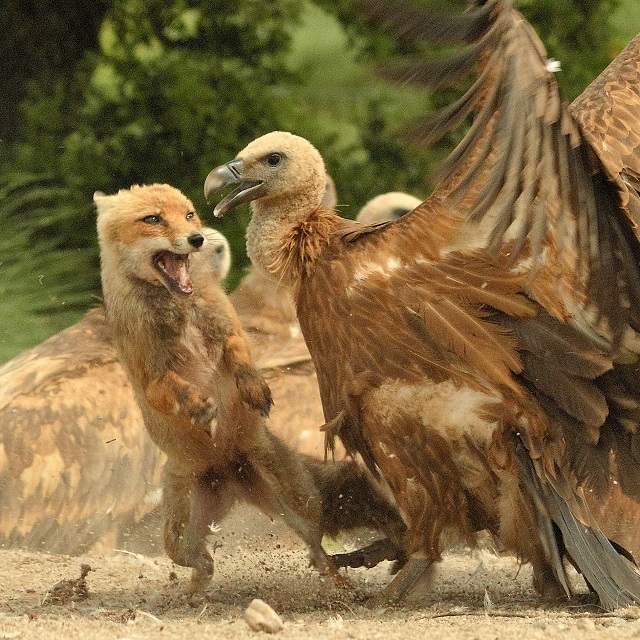Call to ban vulture-killing drug in Europe
Five European environmental organisations are relaunching a campaign to ban the veterinary drug diclofenac, which kills carrion-eating birds and has resulted in the near-extinction of vultures in Asia.
This anti-inflammatory drug, harmless to humans, can potentially kill thousands of necrophagous birds – that is, those that feed on corpses – and its use is unnecessary, since there are equally effective veterinary alternatives. The SEO (Spain), SPEA (Portugal), Vulture Conservation Foundation, BirdLife Europe and Worldwide Fund for Nature want the drug banned across the Continent, and particularly in Spain, Italy and Portugal, the three EU countries where most European vultures live.

Black Vulture, Balearic Islands (Photo: Peter Warne).
The new campaign, Ban Vet Diclofenac, brings together all updated information on the approval, commercialisation and risks posed by diclofenac in Europe, as well as a clear appeal and message for the public to mobilise and protect Europe’s vultures. The organisations will co-ordinate action at both national and EU level, from veterinary groups and farmer associations to municipalities, regional governments and the European Commission. A video will be launched this summer, along with follow-up activities later in the year.
Birds are exposed to the drug by feeding on the corpses of animals which have previously been treated. Its pernicious effect on vultures is well-documented on the Indian subcontinent, where the presence of diclofenac in only 1 per cent of the carcasses of abandoned cows in the field led to the 99 per cent loss of five species: White-backed Vulture, Red-headed Vulture, Slender-billed Vulture, White-rumped Vulture and Indian Vulture. Its use is now banned in India, Nepal, Bangladesh, Iran and Pakistan, a practice which has slowed this catastrophic decline.

Red-headed Vulture, Cambodia (Photo: Neil Bowman).
The veterinary use of diclofenac is permitted by the EU and the national governments of Spain and Italy, though in Portugal the authorities are assessing their position. However, recently the Spanish Agency of Medicines and Sanitary Products (AEMPS) concluded that each year around 6,000 Griffon Vultures in the country could die as a result of diclofenac, an annual decline of more than 7 per cent.
"Prohibiting the veterinary use of diclofenac is not only a matter of common sense but also a matter of law. The precautionary principle – which requires avoiding unnecessary risks – governs all conservation regulations in Europe. Authorising a drug with a potential deadly effect on birds that we must protect does not seem to be a measure consistent with this legal requirement," commented Iván Ramírez, Head of Conservation for BirdLife Europe and Central Asia.
Vultures are nature’s cleaners, eating the flesh of other dead animals and helping to reduce the spread of disease; their actions eliminate the need for the treatment and incineration of thousands of tons of animal remains every year, saving millions of euros in waste management and the potential emission of hundreds of thousands of tons of C02 per year. Yet they are one of the most threatened bird groups on the planet, with 16 out of 23 species at serious risk of extinction. Spain has a key role in vulture conservation, as the country is home to 95 per cent of Europe's Griffon and Black Vultures (also known as Cinereous Vulture).

Griffon Vulture, Spain (Photo: Ross Doughty).
The fate and survival of such critical species will depend on the engagement, mobilisation and commitment of European citizens and its politicians. Ban Vet Diclofenac hopes to ensure that outcome.

